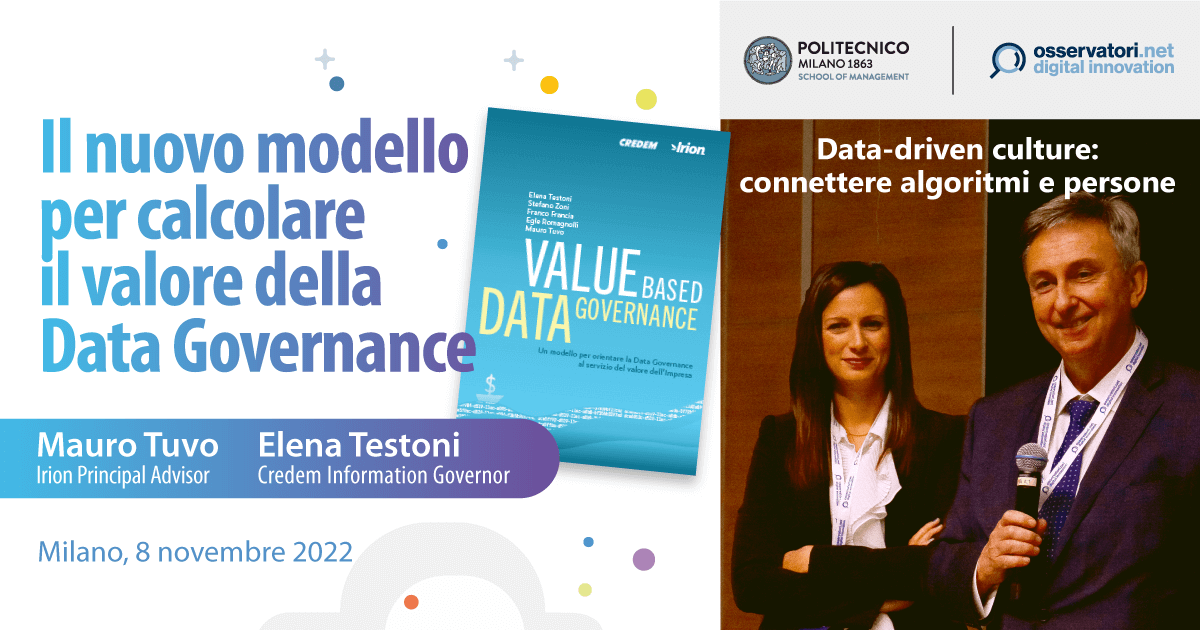The data market beats the crisis and accelerates. The expenditure of Italian companies in infrastructure resources and data management and analytics software and services in 2022 records a boom of 20% compared to the previous year and reaches 2.4 billion euros. This is the highest growth rate since 2019. Moreover, it confirms the positive trend already underway in 2021, after a year with the market almost at a standstill due to the pandemic. Such is the picture that emerges from the Big Data & Analytics Observatory study presented at the Data-driven culture convention at the Politecnico di Milano.
In particular, the most substantial acquisition is that of Data Management and Analytics software, with 54% of total expenditure and +25% over 2021. The growth is most pronounced in the areas of GDO and Retail, followed by Public Administration and Health. However, only 15% of large Italian companies are at an advanced level of maturity, according to the new Data Strategy Index developed by the Observatory. 30% are labelled as “proactive”, 22% as “watchful”, 18% “immature”, and 15% “at the first steps”. The index assesses three areas: Data Management & Architecture (technological management and governance of data assets), Business Intelligence and Descriptive Analytics (tools and skills for pervasive business intelligence), and Data Science (data analysis).
- Events
Big Data & Business Analytics Observatory: +20% data market acceleration. Irion and CREDEM present Value-Based Data Governance

Share:
You might also be interested in
Start extracting value from your data today

Request a demo
See for yourself how Irion EDM® can help you use your data competitively.

Contact us
Explore a world of opportunities and solutions with Irion EDM®. Contact us now to transform your experience.

Video tutorial
Watch the product video tutorials to discover all the features and capabilities of Irion EDM®.


